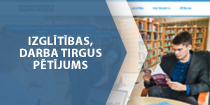Developing Senior Tourism in Remote Regions (TOURAGE)Knowledge of Ageing in North Karelia
North Karelia University of Applied Sciences have created a definition for the “knowledge of ageing “ in their publication “Check Marks for the Knowledge of Ageing” based on their long expertise in that matter. According to that publication the knowledge of ageing means knowledge and skills in which the global phenomenon of ageing can be seen as an opportunity for all to learn and live a new type of a full life in all sectors and branches of the society.
The knowledge of ageing is based on the idea of senior citizens playing an active role in the society. They also influence and take part in decision-making that affects them. Ageing is a valuable and positive phenomenon, an inviolable human right of every citizen. This right belongs to everyone regardless of their gender, nationality and financial position or ability to function- or lack of it. Ageing does not only mean receiving services. It means comprehensive participation in building our shared world. We have to remember that in addition to professional competence, the knowledge of ageing includes the specific competence of senior citizens, individuals and groups. Knowledge of ageing -or taking the needs of an ageing population into account - is needed in working life, planning of housing and the living environment, various sectors of education and training, cultural life, tourism and wherever people of different ages are leading their everyday lives. (source: Check Marks for the Knowledge of Ageing, North Karelia University of Applied Sciences, 2011)
In North Karelia Senior Citizens are Growing ResourceThe various strategies in North Karelia, Regional Plan and Welfare Programme point the direction for the region’s development over the next few decades. The ageing population is considered as a regional resource. The Regional Strategic Programme 2030 creates a vision of a viable and safe region where the residents have good basic requisites for welfare, healthy life, influencing and participating. The regional Council of North Karelia’s Welfare Programme 2015 stresses safeguarding welfare and ability to function in various stages. The health, ability to function and independent living of the aged will be promoted through new service models and solutions for ageing, putting more focus on preventive work and support at early stage to prevent social inclusion and health problems as well as supporting new product and service innovations. The senior citizen of the future is commonly considered as someone who is wealthy and active, have a good health and enjoy wellbeing. But in regard to ageing, we have to remember also those who are excluded or at risk of being excluded.
Tourism means many opportunities for seniors. Seniors of today are willing to travel a lot and he/she prioritizes health and refreshing oneself. Most of the seniors are interested in culture experiences, relaxing, wellbeing and different activities in green care environment, nature. For example, in Finland and North Karelia green care services have been emphasized as a one of the development targets also concerning senior tourism services. Green care means the utilization of nature and rural environment such as plants, animals, daily routines, communality and silence as a source of wellbeing. It is an umbrella concept for many methods which are improving mental and physical wellbeing. Senior tourism gives many possibilities to develop well-being entrepreneurship and employment in rural areas and external border regions.
Irma Ahokas-Kukkonen
|
|






